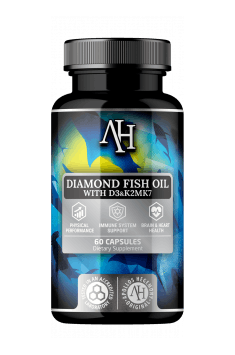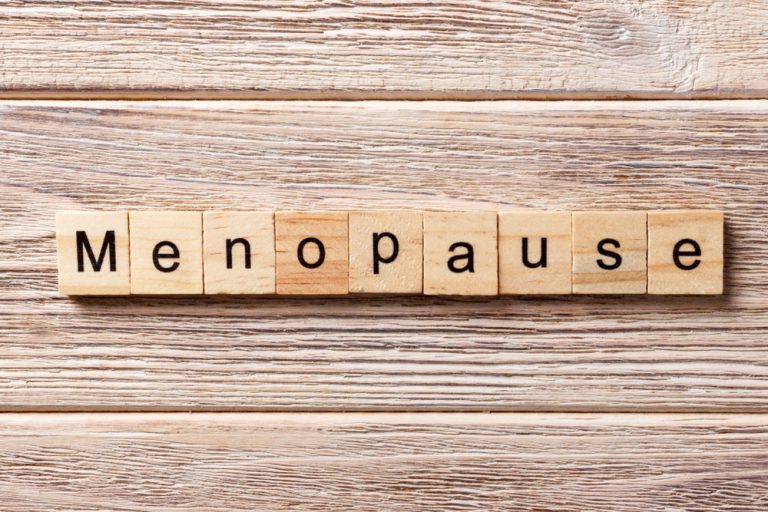At around the age of 50, a natural transition takes places for women, which results in the permanent cessation of menstruation. This is known as the menopause.
What is menopause?
During the menopause, women literally run out of eggs. Each women has a supply of eggs from the moment she is born and over the years they are used up and die off. She finally reaches a certain age where there simply aren’t any more. What the body does then to try and get that woman to ovulate is to release the hormone FSH (follicle-stimulating hormone). This hormone is released every month in a normal cycle but during menopause, a woman’s body registers that ovulation is not taking places, so increases the production of FSH. Also during this time, women’s ovaries stop producing oestrogen. Interestingly, the adrenal glands and fat tissue continue to make oestrogen but the ovaries are the greatest producer of the body’s oestrogen and therefore the blood levels of oestrogen take a dramatic dip. Ensuring the adrenal glands are healthy is important in order for you to ensure that this other form of oestrogen is being produced.
Long-term, oestrogen reduction can cause changes in the body which can impact bone health and the cardiovascular system and post-menopausal women are at an increased risk of cardiovascular disease and osteoporosis. However, a healthy diet and lifestyle can help protect against these chronic health problems.
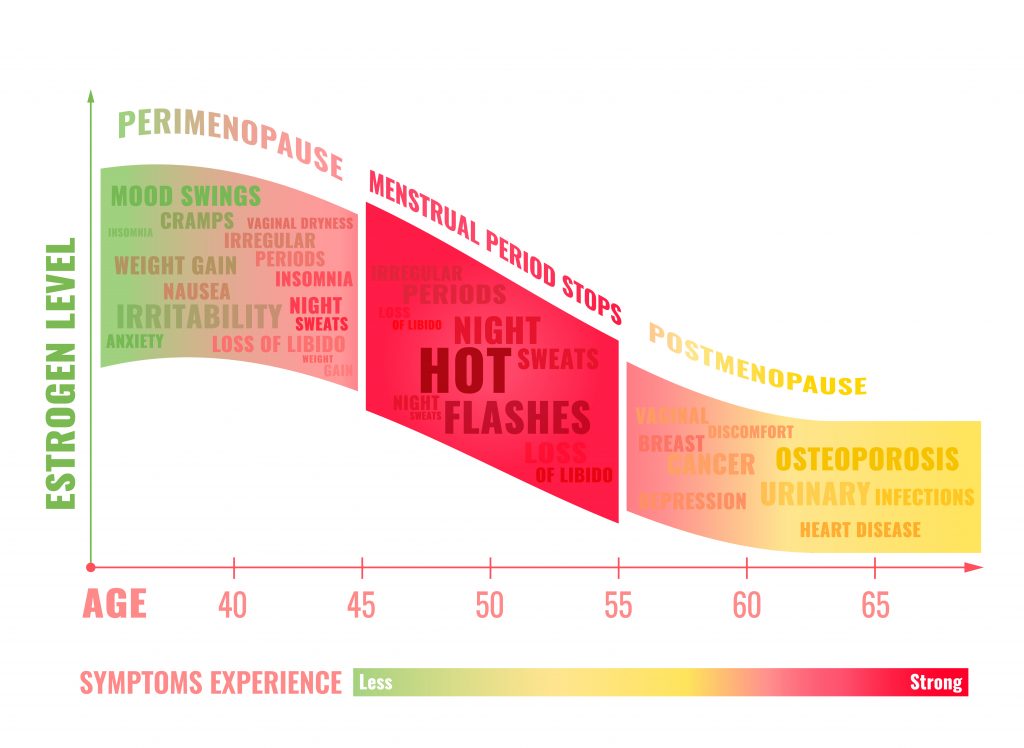
An period of menopause
Menopause is not just a single event, occurring suddenly, it can begin with perimenopause around 10 years prior, in which the hormones oestrogen, progesterone and testosterone are fluctuating. Some women sail through this time with the only noticeable change being their period stopping, but for others this time can be dominated by symptoms including weight gain, anxiety, vaginal dryness, night sweats and hot flushes. A UK survey found that a quarter of women suffered from menopausal symptoms so severe they’d even considered leaving their jobs. However, the debilitating symptoms are not inevitable consequences of the menopause.
There are many lifestyle changes that can be introduced to help ease some of the menopause symptoms including exercise, relaxation techniques and reducing caffeine. A well-balanced diet is also essential during the menopause as it enables the body to adjust accordingly to the hormone changes and naturally maintain oestrogen for the adrenal glands and fat deposits. Blood sugar balance is essential during the menopause as blood sugar imbalances can be a big stress on your body and interfere with the balance of adrenal, thyroid and sex hormones. Aim to regulate your blood sugar levels by ensuring you have a regular intake of essential fats, good quality protein and a healthy, varied diet. Making sure your digestive system is in check is important too as our ability to make digestive juices declines with age and this can result in difficulty digesting important nutrients such as magnesium, manganese, zinc and selenium.
Supplements for menopause
A healthy, well-balanced diet should include the following to help you feeling balanced during the menopause transition:
Calcium
The lack of oestrogen being produced during menopause increases the risk of osteoporosis. During the menopause, it’s important to keep calcium levels up in order to protect against osteoporosis. As well as being important for bone health, calcium is also important for keeping blood, muscles and nerves in check. The recommended intake of calcium is 700mg per day for adults.
Vitamin D
Another important nutrient for bone health, Vitamin D helps the absorption of calcium, and is produced in our skin when we are exposed to sunlight. As Vitamin D is only found in a limited amount of foods in small amounts and the lack of sunshine during the winter months, it is recommended that everyone takes a daily supplement containing 10ug of Vitamin D between October and March.
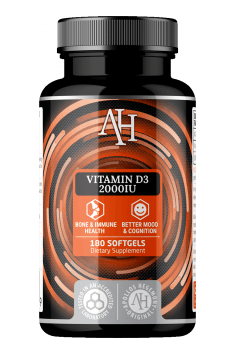
Phytoestrogens
These are one of the most studied foods in relation to menopause. Similar in structure to oestrogen, phytoestrogens have shown to help reduce some of the low oestrogen levels symptoms associated with the menopause. The two main types are isoflavones, found in soybeans, legumes, chickpeas and lignans, found in cereals, linseeds and vegetables.
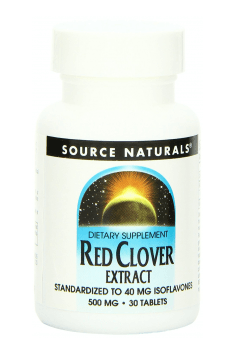
Vitamin C
Healthy adrenal glands are important for energy and for having good resilience to stress. As mentioned earlier, ensuring your adrenal glands are healthy is important for oestrogen production. Vitamin C is needed to help the adrenal glands function optimally, as well as magnesium, manganese and zinc.
Essential fatty acids
Essential fatty acids are the building blocks of hormones and without them, the body wouldn’t be able to produce hormones. Not only that, fatty acids also play a part in hormone transport and communication. As the menopause is such a critical time for your hormones, ensuring you’re getting enough essential fatty acids, could play a big role in helping to soothe those hormones and help reduce some unwanted symptoms.
